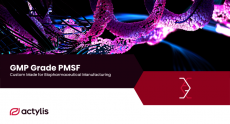GSK partners with Miltenyi Biotec to target CAR T cell therapy automation

The deal will see German tech firm Miltenyi Biotec work with the UK drugmaker on a cell and gene therapy R&D platform, in order to automate and improve the scalability of the system’s manufacturing processes for CAR (chimeric antigen-receptor) T-cell based therapeutics in GSK’s pipeline
Such therapies are made using a patient’s own cells - taken, engineered to target and destroy cancer cells and put back into the patient to strengthen the body’s natural T-cell response – and while there has been a surge of interest in the area recently, manufacturing limitations are keeping costs of such products high and jeopardising the safety.
“The lack of standardisation in the manufacturing of personalized cell and gene therapy products requires a highly skilled and excellently trained workforce,” Kathleen Cucu, a GSK spokesperson, told Biopharma-Reporter.com. “Most process unit operations are still performed manually the number of workforce required for manufacturing and the risk of human error are an additional challenge.”
She added that if a manufacturing batch is lost, the individual patient cannot be treated and a new batch would have to be produced, losing precious time to treat serious diseases.
“Thus, commercialisation of personalised cell and gene therapy and application at large scale require a further increase of process robustness and standardisation. Implementation of fully integrated, automated protocols will be key for a commercially viable business to meet the medical need of seriously ill patients and to treat indications with thousands of patients.”
Supplier-led shift to automation?
Automation in cell therapy production was a major talking point at last month’s Cell Therapy Manufactuirng & Gene Therapy Congress in Brussels, Belgium, with firms concerned about the sustainability of the sector without a shift to such systems.
Former Vice President of Technology & Manufacturing at Pluristem and co-founder of process development firm Karnieli Ltd, Ohad Karnieli, told delegates that currently making even a small number of (CAR) Chimeric Antigen Receptor T-Cells is labour intensive, which increases costs and the risk of contamination.
“We need to minimise the people and automate the process,” he said, in agreement with other industry professionals.
But according to Dieter Hauwaerts, VP of Operations at Belgium-based biopharma Celyad also speaking in Brussels, the shift to automation needs to be led by suppliers.
“We need much closer relations between cell therapy makers and suppliers,” he said, adding the first stage of the paradigm shift would be to reach some widely accepted common standards, and “then we will see the real acceleration in automated bioreactors and equipment.”
Miltenyi Biotec has already begun investing in such technologies, for example acquiring Lentigen’s lentiviral vector manufacturing business to bolster its CAR-T offering in 2014.
And last November, GE Healthcare teamed up with Emerson Process Management to increase automation across its single-use technologies in what the firm said at the time would “help drive improvements in production efficiency” of biological products.





















